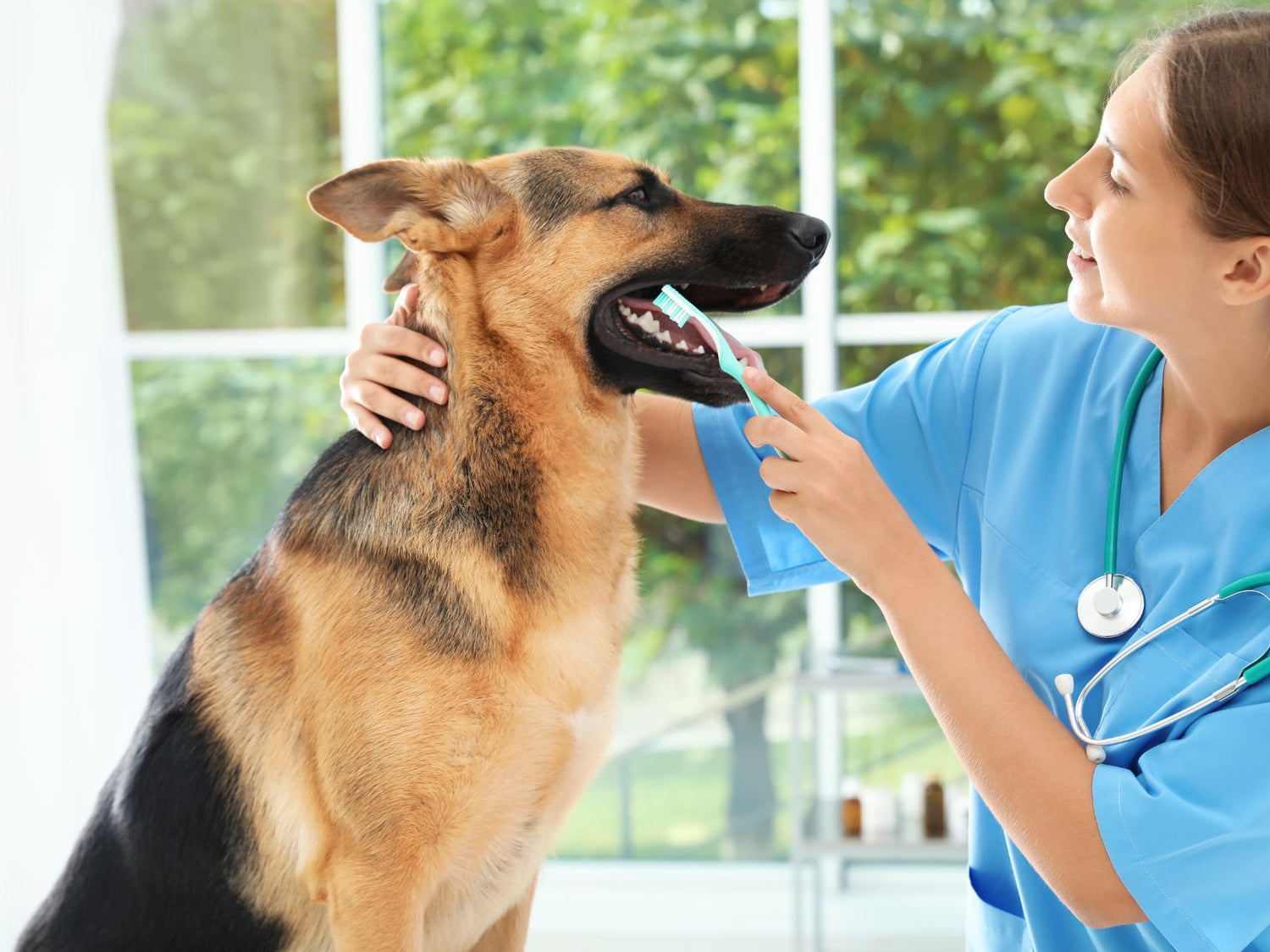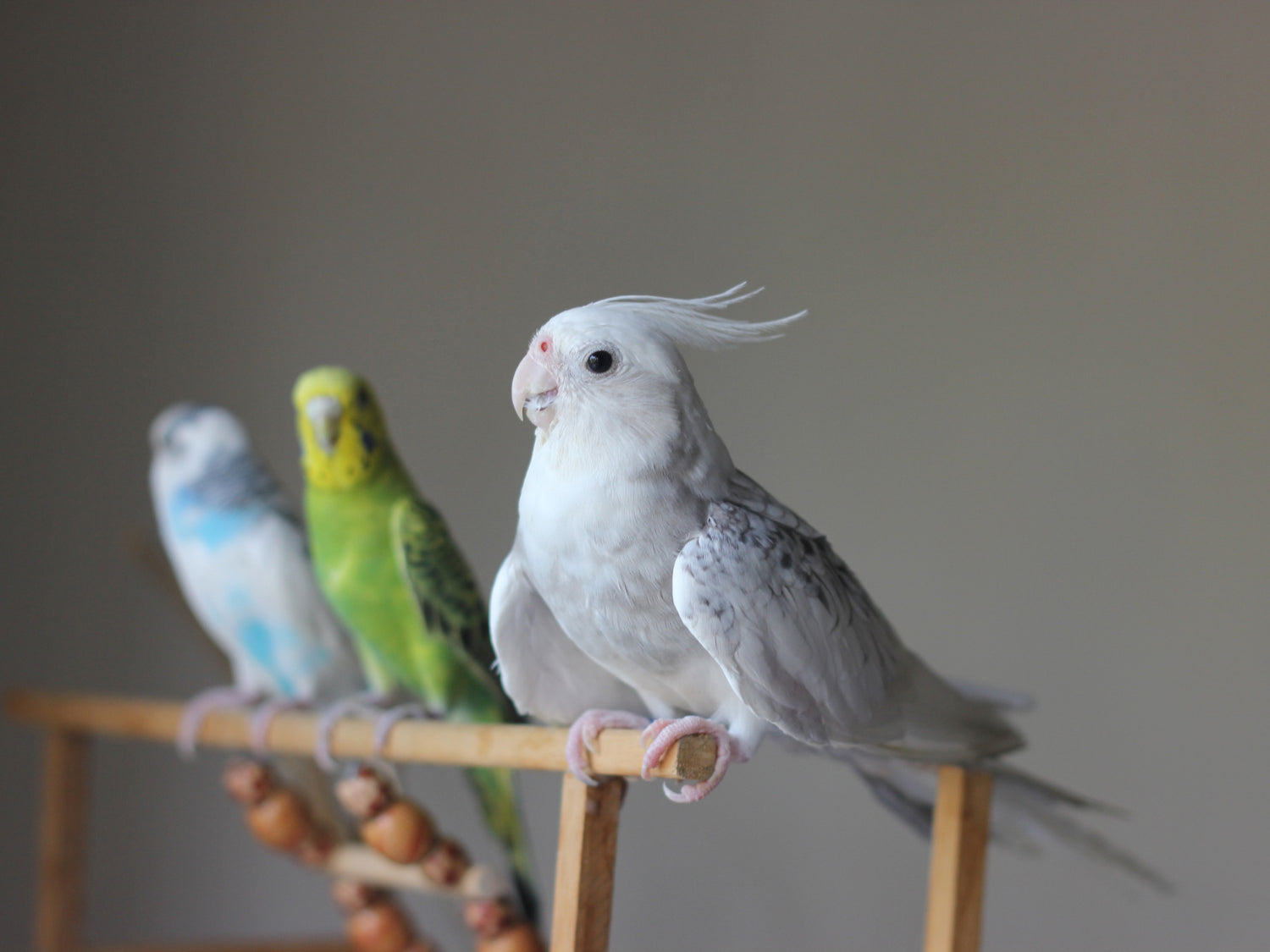Welcoming a feathered friend into your home is an exciting and rewarding experience. As a new bird owner, you embark on a journey filled with joy, companionship, and the unique charm of avian companionship. Here is an array of information and advice to ensure a smooth transition with your new family member.
Bird Selection
Choosing the right bird species is crucial aspect not to be overlooked. Whether it's a vibrant parakeet, a melodic canary, or an intelligent parrot, each species has its own needs and characteristics. Consider factors such as size, temperament, and care requirements when selecting your bird.
Parrots
Domestic parrots are fascinating and endearing creatures. They exhibit remarkable intelligence, and their iconic vocal imitation is a delight.

- Most parrots can mimic human speech and other sounds in their environment. Some may develop an extensive vocabulary, engaging in interactive communication with their owners.
- Parrots are social birds that require regular commitment. They form strong bonds with their owners and may become bored if left alone for extended periods.
- Constant mental stimulation is essential for parrots; toys, puzzles, and interactive activities keep them mentally engaged and happy.
- Physical activities and entertainment are also necessary. Provide a variety of toys and allow for free flight so they can explore their living environment.
- Parrots invest significant time in caring for their feathers. A balanced diet, regular baths, and a clean environment are essential for maintaining their plumage's health.
- Some parrot species have a relatively long lifespan, requiring owners to commit to long-term care.
Parakeets
Domestic parakeets, also known as budgies, are appreciated for their compact size, colorful plumage, intelligence, and social nature.

- Parakeets are suitable for apartment living due to their small to medium size.
- Some parakeets have intellectual abilities that allow them to learn simple words and even melodies. If you prefer silence, be aware that parakeets enjoy whistling and chirping throughout the day.
- Social birds, parakeets form strong bonds with their human family and need daily interactions to stay happy. Prolonged periods of solitude can lead to depression.
- Parakeets also require physical activity. They enjoy flying and should have enough space to spread their wings. Allow them occasional free flight in a safe environment.
- Regular baths can contribute to the cleanliness and health of their plumage. Consider adding a shallow water bowl to their cage.
Canaries
Canaries are often chosen as pets for their melodious singing, especially among males, and their attractive range of plumage colors.

- Due to their small size, canaries are well-suited for cage living in smaller spaces.
- Canaries are more independent, but they still appreciate companionship and interaction with their owners.
- Pay attention to their plumage care, providing dust or shallow water baths in the cage.
- Although canaries may not fly as much as other birds, they need a sufficiently large cage and the option to fly freely outside the cage.
- Canaries can live for several years, requiring long-term commitment from potential owners.
- They are sensitive to changes in light, benefiting from regular exposure to natural light for positive behavioral effects and overall health.
Finches
Domestic finches are also appreciated for their attractive colors and melodious songs.

- Finches are small to medium-sized birds, making them suitable for cage living.
- Social birds, finches enjoy the company of their peers. They can be kept in groups, but it's crucial to select compatible species.
- Meticulous about their plumage, finches benefit from dust or shallow water baths to maintain cleanliness.
- Enrich their environment with various perches, toys, and items encouraging physical and mental activity. They also enjoy flying freely.
- Some finch species can live for several years, requiring long-term commitment from potential owners.
- Regular exposure to natural light is beneficial for their well-being.
Lovebirds
Lovebirds are appreciated for their compact size, lively personalities, and the ability to form close bonds with their owners.

- Small to medium-sized, lovebirds are well-suited for apartment living or smaller spaces.
- Their colorful plumage varies among individuals.
- Lovebirds are socially active birds, easily forming attachments to their owners. They may feel lonely if neglected.
- Intelligent birds, lovebirds can learn to imitate sounds and memorize words and phrases, although their vocal repertoire may not be as diverse as some parrots.
- Provide them with toys, perches, and opportunities for exploration to keep them mentally and physically stimulated.
- Lovebirds enjoy caring for their plumage, and regular baths can contribute to their cleanliness.
- Lovebirds have a relatively long lifespan, requiring a long-term commitment from potential owners.
Comfortable Environment
Create a secure and stimulating living space for your bird. Invest in a spacious cage with appropriate bar spacing, perches of various sizes, and enticing toys. Place the cage in a well-lit, draft-free area, away from direct sunlight and harmful fumes. Here's how to create the ideal cage:
- Cage Size: Choose the largest cage possible, considering your bird's size. Ensure there's enough space for your bird to spread its wings and move freely.
- Bar Spacing: Select a cage with bar spacing suitable for your bird's species, preventing head or body entanglement.
- Climbing Accessories: Add perches of different sizes to stimulate your bird's leg muscles. Natural branches can also provide a more natural environment.
- Resting Area: Provide resting areas with nests or nest boxes to offer your bird a safe and comfortable place to rest. Ensure these areas are easily accessible and well-positioned.
- Baths: Some birds enjoy regular baths. Set up a shallow container for your bird to bathe. Ensure the water is clean and changed regularly.
- Toys: Offer a variety of toys to stimulate physical and mental activity. Wooden toys, balls, mirrors, and manipulative objects are excellent choices. Ensure all cage items, including perches and toys, are made from non-toxic materials. Avoid lead, toxic paints, and hazardous materials
- Feeding: Place feeders and water dispensers in accessible locations. Keep them away from areas where droppings could contaminate food and water.
- Regular Cleaning: Maintain a regular cleaning routine to remove waste and prevent infections. Change the litter, clean feeders, and disinfect the cage periodically.
- Cage Placement: Position the cage in a secure location, sheltered from drafts, extreme temperature variations, and toxic fumes. Ensure your bird receives enough natural light, but avoid prolonged direct sunlight exposure.
Balanced Nutrition
Maintaining a well-balanced diet is key to your bird's health. Research the specific dietary needs of your specific species, and vary between seed mix, pellets, fresh fruits, and vegetables. In case of uncertainty, consult a vet to establish a suitable feeding routine. Here are some principles of a balanced diet:
- Quality Seeds: Seeds often constitute a significant part of a pet bird's diet. Choose high-quality seed mixes specifically designed for your bird's species.
- Pelleted Foods: Commercially available pelleted foods are extruded and provide balanced nutrition. While some birds may resist this change, the gradual introduction of pellets can be beneficial to ensure a complete diet.
- Fresh Fruits and Vegetables: Incorporate a variety of fresh fruits and vegetables into your bird's diet, such as apples, carrots, broccoli, peppers, and other nutrient-rich options.
- Sprouted Seeds: Sprouted seeds are an excellent nutrient source. You can sprout seeds at home or purchase commercially prepared sprouted seeds.
- Vitamin and Mineral Supplements: If your bird's diet doesn't cover all nutritional needs, specific bird-formulated vitamin and mineral supplements can be added under the supervision of a veterinarian.
- Proteins: Ensure your bird's diet includes an adequate amount of proteins, whether through seeds, pellets, eggs, or lean protein sources.
- Clean Water: Clean and fresh water should be available at all times. Some birds may also appreciate a light misting of water to facilitate bathing.
- Limitation of Fatty and Sugary Foods: Limit fatty and sugary foods, such as sunflower seeds or sweet treats, as excessive consumption can lead to health problems.
- Veterinary Consultation: Regularly consult an avian veterinarian for health check-ups for your bird. A professional can provide specific advice based on the individual needs of the bird.
Social Interaction
Building positive bonds with your pet bird is essential for establishing a harmonious and fulfilling long-term relationship. Birds are social creatures, and forging a strong connection requires time and patience. Spend time near the cage, engage in soft conversations, and offer treats from your hand. Gradually introduce physical interaction, always respecting your bird's comfort level. Here are some tips to strengthen these bonds:
- Patience and Consistency: Establishing connections with a bird can take time. Be patient and consistent in your approach. Avoid sudden movements and let the bird gradually get used to your presence.
- Quiet Observation: Start by sitting near the bird's cage without making sudden gestures or attempting to catch it. Allow the bird to observe you from a distance and get accustomed to your presence.
- Slow Approach: When interacting with your bird, approach slowly and avoid abrupt movements. This will help build the bird's trust in you.
- Use of Food: Food can be an excellent way to gain your bird's trust. Offer healthy treats and foods it enjoys, placing them on your hand or near you.
- Gentle Communication: Speak to your bird in a soft and soothing voice. Avoid loud noises that could stress it. Some birds also appreciate soft music.
- Play Sessions: Provide interactive toys and playful activities. Some birds enjoy playing with objects, while others appreciate games that engage their intelligence.
- Respect Body Language: Learn to read your bird's body language. Respect its signs of discomfort or stress, and do not insist if it shows signs of disapproval.
- Positive Training Sessions: Train your bird to perform simple commands with rewards in the form of treats. This promotes a positive bond based on trust.
- Safe Outings: If possible, provide safe outings for your bird. This could include free flights in a secure room or outdoor moments in a suitable aviary.
- Predictable Routine: Birds often appreciate routine. Try to maintain a stable daily routine to create a predictable environment that reassures them.
- Respect Limits: Each bird has its own personality and limits. Respect them. If your bird is not comfortable with certain forms of interaction, do not force the situation.
Mental Stimulation
Ensuring mental stimulation for pet birds is essential for their overall well-being. Birds are intelligent and curious creatures that require stimulating activities to remain mentally balanced. Provide them with a variety of toys, puzzles, and activities. Birds are intelligent and benefit from challenges that keep them mentally active. Rotate toys regularly to keep their environment interesting. Here are some points to consider regarding the mental stimulation of pet birds:
- Interactive Toys: Supply a variety of interactive toys suitable for the size and species of your bird. Toys that offer challenges, such as puzzles or manipulative toys, can engage them mentally.
- Toy Rotation: Regularly change the toys in the cage to prevent boredom. Birds can quickly become accustomed to objects, so introducing new items keeps their interest.
- Stimulating Environment: Create a stimulating environment with diverse perches, natural branches, and objects that encourage exploration. An enriched space motivates birds to interact with their surroundings.
- Training and Rewards: Train your bird to perform simple commands in exchange for rewards, such as healthy treats. This strengthens the bond between you and provides positive mental stimulation.
- Free Flight Time: If possible, allow your bird free flight time in a secure room. This stimulates their instinct to fly and allows them to explore their environment more extensively.
- Human Interaction: Social birds appreciate human interaction. Talk to them, sing songs, and spend time observing them. This fosters an affectionate relationship and provides mental stimulation through communication.
- Intelligence Games: Introduce intelligence games tailored to your bird. This may include toys that require manipulation to obtain a reward, encouraging cognitive thinking.
- Mirrors and Images: Some birds enjoy mirrors, providing them with visual interaction. Additionally, displaying images or videos of other birds can pique their curiosity and provide entertainment.
Preventive Health Care
Schedule routine check-ups with an avian veterinarian to monitor your bird's health. Vaccinations, if recommended, should be administered, and any signs of illness or behavioral changes should be promptly addressed. Also, maintain good hygiene by regularly cleaning the cage, perches, and feeding dishes. Some birds enjoy bathing, so provide opportunities for a splash or misting. Trim nails and beaks as needed, seeking professional assistance if necessary. Here are some important measures to ensure preventive healthcare for your pet bird:
- Regular Veterinary Visits: Plan regular visits to an avian veterinarian for routine check-ups. Veterinarians specializing in birds can detect health issues before they become serious.
- Vaccinations: Consult your veterinarian to determine if specific vaccinations are recommended for your bird species. Some birds may benefit from vaccines against specific diseases.
- Balanced Nutrition: Ensure you provide a balanced and nutritious diet that meets the specific needs of your bird based on its species, age, and health condition.
- Cage Hygiene: Keep the cage clean by regularly changing the bedding, cleaning perches, and disinfecting the cage as per your veterinarian's recommendations. A clean cage reduces the risk of infections.
- Behavior Monitoring: Be attentive to changes in your bird's behavior. Signs such as lethargy, ruffled feathers, changes in food consumption, or unusual behaviors may indicate health issues.
- Weight Control: Monitor your bird's weight and adjust its food accordingly. Sudden weight gain or loss can be an indicator of health problems.
- Mental and Physical Stimulation: Provide toys, activities, and opportunities to fly or explore to mentally and physically stimulate your bird. This helps maintain overall good health.
- Regular Baths: Some birds enjoy bathing. Offer regular baths or water misting to keep feathers clean and promote good skin health.
- Parasite Management: Protect your bird against external parasites, such as mites and lice. Consult your veterinarian for appropriate treatments and prevention recommendations.
- Isolation of New Arrivals: If you have multiple birds, isolate new arrivals for a period to prevent the spread of diseases. Consult your veterinarian before introducing new birds to an existing group.
- Education on Household Hazards: Educate yourself on potential hazards in your home, such as household chemicals, toxic plants, and objects that could cause injuries.
Signs of Stress or Illness
Learn to recognize signs of stress or illness, such as changes in behavior, plumage, or eating habits. Birds often mask symptoms, making early detection crucial. Seek professional advice promptly if you notice anything unusual. Here are some signs to watch for:
Signs of Stress
- Ruffled Feathers: A stressed bird may have ruffled feathers, even when not grooming.
- Body Posture: A stressed bird may adopt a rigid body posture, with puffed-up feathers and a lowered head.
- Frequent Vocalization: Excessive vocalization, especially if different from the bird's usual behavior, may indicate stress.
- Restlessness: Agitated movements, such as frantic flying within the cage, can signal stress.
- Excessive Preening: If the bird excessively preens its feathers or other body parts, it may be a sign of stress.
- Refusal to Eat: Stress can lead to a lack of appetite in birds.
- Isolation: If the bird retreats to a corner of the cage and avoids contact, it may be stressed.
Signs of Illness
- Changes in Stool: Unusual stool color, consistency, or frequency can indicate health problems.
- Watery or Swollen Eyes: Abnormally watery, swollen, or opaque eyes may signal eye issues.
- Sneezing or Coughing: Signs of congestion or respiratory problems.
- Sudden Weight Loss: Rapid weight loss can indicate health issues.
- Abnormal Swelling: Unexplained swelling in certain body parts, such as the abdomen, can be concerning.
- Rapid Breathing: Fast or labored breathing may be a sign of respiratory problems.
- Lethargy: If the bird becomes suddenly lethargic and apathetic, it may indicate a health problem.
- Nasal or Oral Discharge: Abnormal discharge from the nose or beak may signal infections.
Training and Positive Reinforcement
Implement positive reinforcement techniques to encourage desired behaviors. Birds can be trained to perform tricks, follow commands, and even talk. Use treats and praise to reinforce positive actions, making the learning process enjoyable. Positive reinforcement is an effective method for training pet birds, promoting desirable behavior through rewards rather than punishments. Here's how to use positive reinforcement to train your pet bird:
- Understand your bird's motivations: Each bird is unique, and motivations can vary. Some birds are motivated by food, while others may prefer affection or toys. Observe closely what attracts your bird.
- Identify the desired behavior: Clearly determine the behavior you want to reinforce. It could be responding to a command, staying on a perch, or learning a new trick.
- Choose appropriate rewards: Select rewards that your bird finds particularly motivating. This may include treats, petting, special toys, or even playtime.
- Precise timing: Timing is crucial in positive reinforcement. Reward the desired behavior immediately so that the bird associates the reward with its action. Don't delay, as the bird might not make the connection.
- Use varied reinforcers: Vary the types of rewards to maintain your bird's interest. Sometimes use treats, other times use petting or play.
- Start with simple commands: Begin training with simple commands and easily understandable behaviors. Reward every success.
- Avoid punishments: Positive reinforcement focuses on rewarding desired behaviors rather than punishing undesirable ones. Avoid punishments as they can create fear and anxiety in the bird.
- Be consistent: Maintain consistency in your approach. Reward the desired behavior each time it occurs to strengthen the association between the action and the reward.
- Patience and perseverance: Training takes time. Be patient and persevere, progressing at a pace suitable for your bird.
- Create a positive association: The goal is to associate positive experiences with training, reinforcing the bond between you and your bird.
Remember that each bird is a unique individual with its own personality and preferences. Pay attention to your bird's reactions and behaviours, and adjust your approach accordingly. This article serves as a foundation, but it is crucial to adapt to the specific needs of your bird to create a fulfilling and lasting relationship between the two of you.





